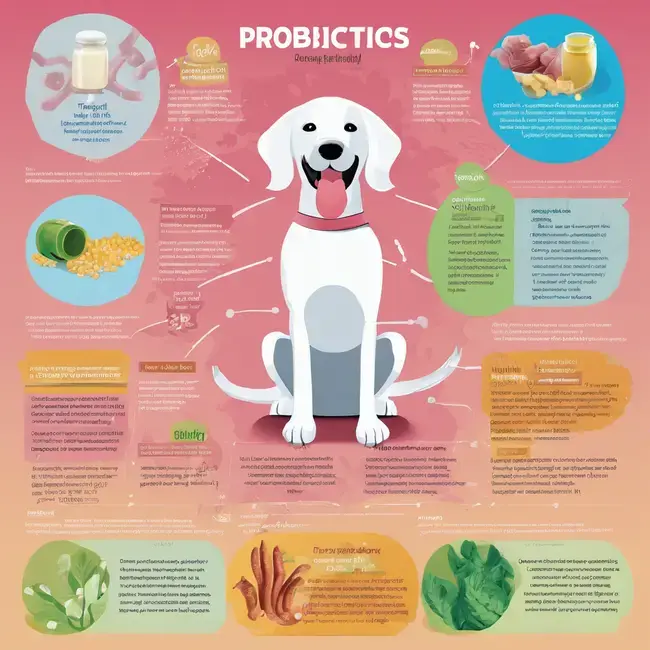Can Dogs Eat Shrimp | Top 10 Benefits and Potential Risks

Understanding a dog’s dietary needs
This post may contain affiliate links, meaning I may earn a commission if you make a purchase, at no extra cost to you. I only recommend products I trust. Thank you for your support.
If you’re a dog owner, you may have wondered whether it’s safe to share your favorite seafood with your furry friend.
One such seafood that often comes to mind is shrimp. Shrimp is a popular delicacy many humans enjoy, but can dogs eat shrimp?

Before we delve into whether dogs can eat shrimp, it’s important to have a basic understanding of a dog’s dietary needs.
Dogs are omnivores, meaning they can consume both meat and plant-based foods. However, their diet primarily consists of high-quality animal protein.
Unlike humans, dogs have specific nutritional requirements that must be met to maintain their overall health and well-being.
These requirements include a balanced mix of protein, fats, carbohydrates, vitamins, and minerals.
In this article, we will explore the benefits and potential risks shrimp for dogs, as well as provide some precautions to ensure your dog remains healthy and happy.
Can dogs eat shrimp?
Can my dog eat shrimp? Yes, dogs can indeed eat shrimp, and when introduced in moderation and prepared appropriately, it can offer several nutritional benefits.
Shrimp is a rich source of protein, omega-3 fatty acids, vitamin B12, phosphorus, and other essential nutrients that can positively impact a dog’s overall health.
However, while shrimp can be a healthy addition to a dog’s diet, several considerations should be taken into account to ensure the safety and well-being of the dog.
It is important to be mindful of potential allergens, cooking methods, and serving sizes when incorporating shrimp into a dog’s diet.
Understanding these factors is crucial in determining whether shrimp is suitable for an individual dog and how it can be added to their diet in a safe and beneficial manner.
Top 10 benefits of shrimp for dogs
1. High quality protein source
Shrimp for dogs is an excellent source of high-quality protein, providing essential nutrients for the growth, repair, and maintenance of tissues, muscles, and organs.
Protein plays a crucial role in supporting the immune system by producing antibodies, enzymes, and immune cells that defend the body against infections and diseases.
2. Source of omega-3 fatty acids
Shrimp for dogs contains omega-3 fatty acids, including EPA and DHA, which are beneficial for their health.
These fatty acids support heart health, reduce inflammation, and contribute to healthy skin and coat, potentially alleviating skin allergies and conditions.
3. Rich in vitamin B12
Shrimp for dogs is a rich source of vitamin B12, which is essential for their nervous system, metabolism, and the formation of red blood cells.
Adequate levels of vitamin B12 contribute to overall energy levels, neurological function, and a healthy appetite.
4. Supports joint health
The glucosamine and chondroitin in shrimp for dogs support joint health by reducing inflammation and easing pain, particularly beneficial for dogs with arthritis or other inflammatory joint conditions
Glucosamine in shrimp is a building block for cartilage, the tissue that cushions joints. Chondroitin is another component found in shrimp that aids in maintaining joint health.
5. Low in fat
Shrimp for dogs is relatively low in fat, making it a favorable protein source for those needing to manage weight or with specific dietary requirements related to fat intake.
Lower-fat foods are often easier for dogs to digest, especially those with sensitive stomachs or digestive issues reducing the risk of digestive upset or discomfort.
Dogs prone to pancreatitis or dogs with specific dietary requirements may benefit from a low-fat diet.
6. Low in carbohydrates
Shrimp for dogs serves as a low-carbohydrate protein source, making it suitable for those with diabetes or requiring low-carb diets.
It offers a protein option without a significant carbohydrate load, which can help in managing blood sugar levels and overall health.
Low-carbohydrate foods can also support weight control in dogs, especially those prone to obesity or needing to maintain a healthy weight.
Shrimp can be gentle on the digestive system by reducing the risk of gastrointestinal discomfort for dogs with sensitivities or intolerances to carbohydrates.
7. Rich in amino acids
Shrimp for dogs provides essential amino acids that are fundamental building blocks of proteins which play a crucial role in their various physiological functions.
Essential amino acids are necessary for muscle development and maintenance. They support muscle growth, strength, and repair, helping dogs stay active and healthy.
Some amino acids, such as glutamine and arginine produce immune cells and antibodies, strengthen immune responses, and protect dogs against infections and diseases.
8. Boosts cognitive function
Shrimp for dogs contains choline, a key component of acetylcholine, a neurotransmitter that plays a critical role in brain function, memory, and learning.
Adequate choline intake is beneficial for dogs’ cognitive function, including memory, learning, and problem-solving abilities.
9. Source of antioxidants
Shrimp is a source of vitamin E, selenium and astaxanthin, which are essential antioxidants that help boost the immune system and protect cells from damage.
Selenium helps protect cells from damage, supports the immune system, and contributes to thyroid function in dogs.
Astaxanthin, a carotenoid pigment found in shrimp, has potent antioxidant properties that can strengthen immune defenses.
Vitamin E in shrimp for dogs acts as a powerful antioxidant that neutralizes free radicals, preventing them from causing harm to cells and tissues.
10. Supports Dental Health
The texture of shrimp, particularly when raw or slightly cooked, has a slightly abrasive quality. When dogs chew on shrimp, the texture helps remove plaque and tartar buildup from their teeth.
Chewing on shrimp can also stimulate the gums by increasing blood flow to the gums, which supports gum health and reduces the risk of gum disease.
Shrimp for dogs contains natural enzymes that can help inhibit the growth of harmful bacteria in the mouth, reducing the risk of oral infections and bad breath.
Potential risks shrimp for dogs
While shrimp can offer certain nutritional benefits for dogs, there are potential risks associated with feeding shrimp to them that should be considered.
1. Allergic reactions
Dogs, like humans, can develop allergies to certain foods, including shrimp. Symptoms of an allergic reaction may include itching, swelling, digestive issues, and in severe cases, difficulty breathing.
2. High cholesterol
Shrimp is naturally high in cholesterol, and excessive consumption can contribute to high blood cholesterol levels in dogs, especially those with existing heart or lipid disorders.
3. Choking hazard
Shrimp shells, tails, and other non-edible parts can pose a choking hazard or lead to digestive tract obstruction if not removed before feeding shrimp for dogs.
4. High sodium content
Shrimp with added salt or seasoning can contain excessive sodium, which, if consumed in large amounts, can lead to salt poisoning or electrolyte imbalances in dogs.
5. Bacterial contamination
Raw shrimp can harbor harmful bacteria and parasites such as Salmonella or E. coli, potentially causing foodborne illnesses in dogs if not properly handled and cooked.
6. Contains bones and sharp parts
Shrimp contain small bones or sharp parts that, if ingested, can cause injury to a dog’s mouth, throat, or digestive system.
7. Potential interaction with medications
Some medications that dogs may be taking could interact with components in shrimp, so it’s important to consider any potential interactions before feeding shrimp to a dog.
8. Digestive sensitivity
Some dogs may have sensitive digestive systems, and the introduction of shrimp can lead to gastrointestinal upset or allergic reactions.
Precautions to consider when feeding shrimp to dogs
Feeding shrimp to dogs can be beneficial, but it’s important to take certain precautions to ensure their safety.
Here are 10 precautions to consider when feeding shrimp to dogs:
1. Observe your dog for allergies
Monitor your dog for any potential allergic reactions after consuming shrimp.
If you notice any unusual symptoms, such as itching, vomiting, diarrhea, swelling, lethargy or digestive issues, consult your veterinarian promptly.
2. Cook the shrimp thoroughly
Ensure that the shrimp is thoroughly cooked. Raw or undercooked shrimp can harbor harmful bacteria and parasites that can cause gastrointestinal upset.
3. Avoid seasoning the shrimp
Avoid feeding shrimp seasoned with spices, herbs, or sauces that may contain ingredients harmful to dogs, such as garlic or onions.
4. Remove the shells and tails
If you choose to feed your dog shrimp, ensure that all shells, tails, and other non-edible parts are removed to prevent choking or digestive tract obstruction.
5. Portion control
Feed shrimp to your dog in moderation. Too much shrimp can upset your dog’s stomach due to its high protein content and may lead to digestive issues.
6. Removes any small bones
Check for and remove any small bones or sharp pieces in the shrimp to prevent injury to your dog’s mouth, throat, or digestive system.
7. Limit sodium content
Limit the amount of salt or sodium present in shrimp preparations, as excessive sodium intake can lead to health problems like dehydration, high blood pressure in dogs, salt poisoning or electrolyte imbalances.
8. Only give shrimp as a supplement
Shrimp should be part of a balanced diet. It should not replace essential components of a dog’s diet such as high-quality dog food formulated to meet their nutritional needs.
9. Always buy fresh shrimp
Purchase fresh, high-quality shrimp from reputable sources to minimize the risk of contamination and ensure that your dog receives the best nutritional value.
10. Always consult a vet
Before incorporating shrimp into your dog’s diet, it’s advisable to consult with your veterinarian, especially if your dog has specific dietary requirements or health conditions.
Can dogs eat shrimp tails?
It’s generally NOT recommended to feed dogs shrimp tails. Shrimp tails can pose a choking hazard or lead to digestive tract obstruction if ingested.

Additionally, shrimp tails may not be easily digestible and could potentially cause discomfort or injury to a dog’s digestive system.
So, can dogs eat shrimp tails? No, it’s best to remove the tails and any other non-edible parts of the shrimp before feeding it to your dog to ensure their safety and well-being.
Finally, can dogs eat shrimp?
Can my dog eat shrimp? Yes, but while dogs can eat shrimp and potentially benefit from its nutritional value, it’s important to be mindful of the potential risks associated with shrimp for dogs.
Allergies, choking hazards, sodium content, bacterial contamination, and overfeeding are among the considerations that should be taken into account.
It’s crucial to ensure that shrimp is cooked thoroughly, served in moderation, and avoid seasoning or added ingredients that may be toxic to dogs.
Additionally, individual dogs may have unique dietary needs and sensitivities, making it essential to consult with a veterinarian before incorporating shrimp into their diet.
Pet owners can now make informed decisions about whether shrimp is suitable for their dog and how it can be safely integrated into their overall diet.
If you decide to introduce shrimp or any new food into your dog’s diet, remember to do so gradually and monitor their reaction.




